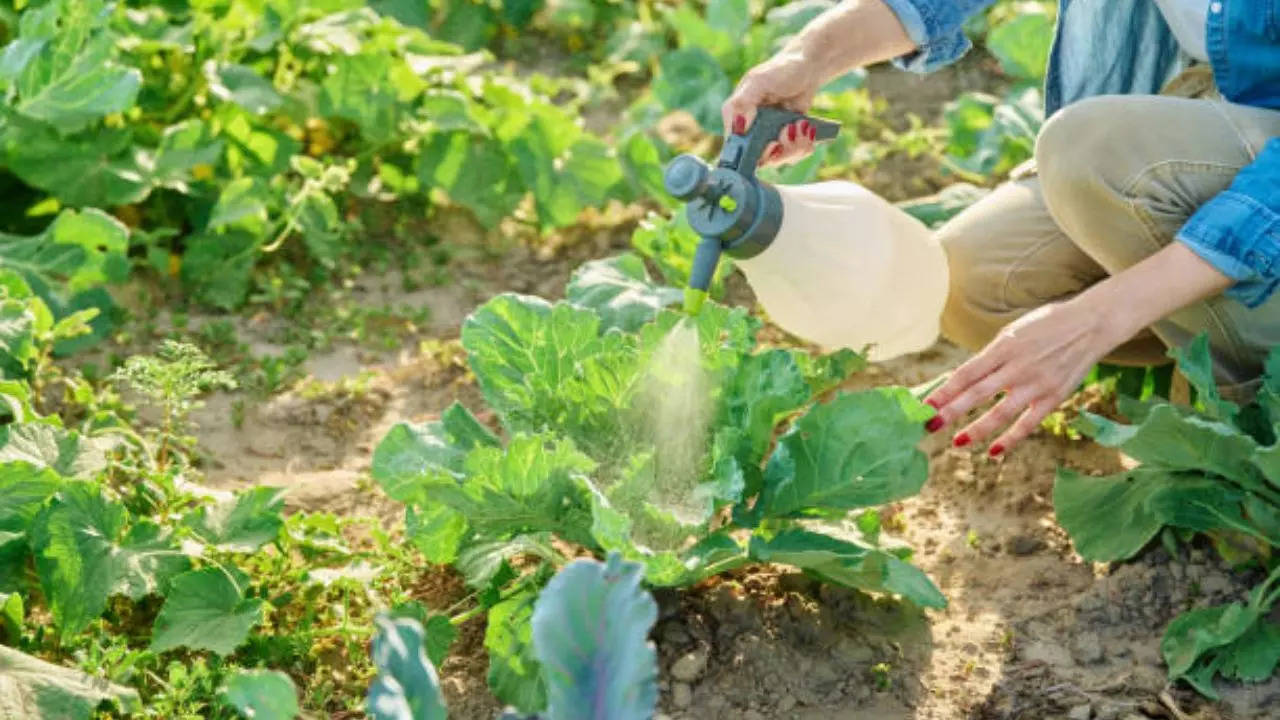Contents
-
news
-
Health
Teen dies after eating poisonous cabbage: Are your vegetables full of pesticides?
The tragic death of a 14-year-old girl in Rajasthan after eating cabbage laden with pesticides highlights the dangers of chemical residues in vegetables. Common Indian vegetables like spinach, cabbage and okra are often sprayed with harmful pesticides.

Teen dies after eating poisonous cabbage: Are your vegetables full of pesticides? (Image credit: iStock)
Green leafy vegetables are said to enhance our health and contribute to our well-being. However, a recent shocking incident has forced us to question this notion. A 14-year-old girl died tragically in Sri Ganganagar district after unknowingly eating pesticide-laden cabbage leaves from her own farm. On December 18, he unknowingly plucked a leaf and ate it. After walking for some time, when the girl started vomiting, she came home and told her family about her ill health. Later she was admitted to a private hospital, where after investigation it was found that the girl’s uncle had sprayed pesticide on the cabbage growing in the field, which also became the cause of her illness and death.
Role of pesticides in agriculture
Pesticides are widely used in agriculture to protect crops from pests and diseases. However, improper use, excessive use, or failure to wash produce thoroughly can leave harmful residues on vegetables, posing significant health risks.
Some of the common pesticides used in Indian agriculture include:
– Chlorpyrifos: Often used in vegetables such as cabbage and cauliflower.
– Endosulfan: Although banned in many countries, it is still used in some areas.
– Carbaryl: Commonly applied to fruits and vegetables.
– Malathion: Widely used on leafy greens and other crops.
– Monocrotophos: A highly toxic pesticide often found in Indian produce.
Health risks associated with pesticide exposure
Pesticides can have both acute and long-term health effects. Immediate exposure, as in the case of the Sri Ganganagar tragedy, can result in symptoms such as nausea, vomiting, dizziness and, in severe cases, death.
Chronic exposure to pesticide residues can lead to long-term health problems, including:
– Neurological problems: Pesticides can affect the nervous system, causing disorders such as Parkinson’s disease.
– Hormonal disruption: Many pesticides are endocrine disruptors that disrupt hormonal balance.
– Reproductive problems: Prolonged exposure can affect fertility and cause developmental problems in children.
– Cancer risk: Some pesticides like chlorpyrifos and endosulfan have been linked to an increased risk of cancer.
Indian vegetables full of pesticides
Several studies and reports indicate that some vegetables in India are at higher risk of pesticide contamination than others. Here are five commonly consumed vegetables that often contain high pesticide residues:
1. Cabbage
To combat pests, pesticides like chlorpyrifos are often sprayed. Improper washing may leave harmful residues.
2. Spinach
Spinach, a major leafy green, is prone to pesticide contamination due to its delicate leaves that attract insects.
3. Ladyfinger
– It is often treated with several pesticides to prevent infection, making it one of the most contaminated vegetables.
4. Cauliflower
– Pesticides like endosulfan and monocrotophos are commonly used for the protection of this crop.
5. Brinjal (Brinjal)
– Known for high pesticide use, brinjal often contains residues of harmful chemicals.
How to keep your vegetables pesticide free
Making sure the vegetables you consume are free from harmful pesticides is important for your health. Here are some practical and effective steps you can take:
1. Wash thoroughly with water
– Wash vegetables under running water for 30-60 seconds.
– Use a soft brush to scrub tough vegetables like carrots and potatoes.
2. Soak in baking soda solution
– Mix 1 teaspoon baking soda in 1 liter water.
– Soak the vegetables for 15-20 minutes and wash them thoroughly.
– Studies show that this method removes most surface pesticide residues.
3. Use Vinegar Soak
– Mix 1 part white vinegar in 3 parts water.
– Soak vegetables for 15 minutes before washing them.
-This method is especially effective for leafy vegetables.
4. Peel when possible
– Remove the outer layer of vegetables like cabbage, lettuce and onion.
– Peeling removes most pesticide-contaminated parts.
5. Opt for organic products
– Although not completely pesticide free, organic vegetables have significantly lower levels of pesticides.
– Support local farmers practicing organic or sustainable farming.
6. Grow your own vegetables
– Start a home garden to control what goes into your food.
– Use natural insect repellents like neem oil or companion planting instead of synthetic pesticides.
Get the latest news live on Times Now with breaking news and top headlines from around the world.


